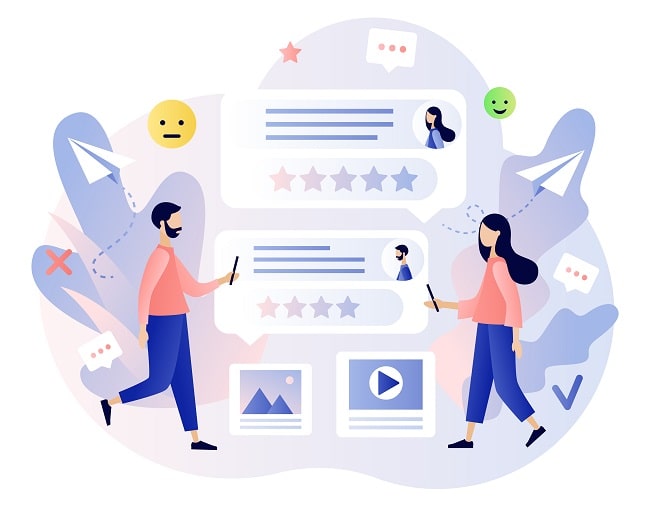Diving Deep into B2C Marketing: Effective Tactics and Strategies
Welcome to the captivating world of Business to Consumer (B2C) marketing – a realm brimming with unique strategies, effective tactics, and relentless dynamism! Be it a seasoned marketing professional or a curious beginner, this space offers learning opportunities for all. The purpose of this blog post is to help you comprehend the gravitas of B2C marketing, an indispensable part of today’s business landscape that top-tier brands leverage to drive unmatched success.
Let’s break down the basics first. B2C marketing, an acronym for Business to Consumer marketing, is more than just a jargon tossed around in the corporate world. It’s an art, it’s a science, and above all, it’s the bridge between businesses and their customers. Offering a unique blend of insightful strategies and effective tactics, it’s the essential engine that facilitates consumer engagement and drives business growth. The journey to mastering this realm is certainly intriguing and our exploration begins here.
Understanding B2C Marketing
Hey there! Let’s dive into the world of B2C, or Business to Consumer, marketing. This is a strategy that focuses on promoting products and services directly to consumers. One of its primary objectives is to create strong consumer relationships, which in turn raises brand awareness and boosts sales. Not only does it play a crucial role in growing a business, but it’s also vital for understanding consumer needs, wants, and behaviors. This knowledge helps businesses tailor their products and advertisements accordingly.
Ever wondered how B2B (Business to Business) marketing differs from B2C marketing? While both deal with marketing products or services, they target different audiences and thus require unique strategies. B2B marketing typically involves selling products or services to other businesses, often focusing on long-term relationships and logical decision-making processes. On the other hand, B2C marketing tends to aim at individual consumers where emotional triggers often play a significant role in purchase decisions.
Now, coming to the strategies. For B2B marketing, strategies usually revolve around creating informative and detailed content such as white papers or case studies. B2B marketers also leverage platforms like LinkedIn to reach prospective business clients. As for B2C marketing, techniques like social media advertising, influencer promotions, and email marketing targeting individual buyers are more common. To exemplify, think about how fashion brands often collaborate with influencers on Instagram to reach potential consumers.
The Orange Soda website has a great article contrasting B2B and B2C marketing strategies in more detail. No matter whether you’re a B2B or B2C marketer, remember that understanding your audience is at the core of any successful marketing strategy. Happy marketing!
The Power of Emotional Appeal
In the sphere of B2C marketing, emotional appeal is quite the game changer. Marketing tactics have always revolved around grabbing the customer’s attention and emotions are certainly a powerful way to do that. Don’t just take our word for it though; data also concurs with this fact. For instance, according to a report by Nielsen, ads with a higher emotional response resulted in a 23% increase in sales compared to the average advertisement. This goes to show how whopping the difference can be when emotions are properly leveraged.
In practice, emotional branding manifests itself in storytelling, where brands employ narratives that resonate with their audience’s values and experiences. By succeeding in creating such a connection, brands can turn mere prospective customers into loyal advocates. A classic example is the “Real Beauty” campaign by Dove. Their focus on authenticity and self-love struck a chord with their target audience, leading to an enormous surge in brand devotion.
It’s not just about increasing sales, though. Emotional branding also contributes immensely to the overall brand identity and symbolizes what it stands for. Hence, understanding the importance of emotional appeal in B2C marketing is crucial for not just attracting customers, but also strengthening the bond with them over time.

Strategy: Mastering the Art of Personalization
Let’s zoom into one of the most influential tools leveraged by businesses today – personalization strategy. Personalization is not just a fancy marketing term. Harley Manning from Forrester writes about how it is a potent method of enhancing customers’ shopping experiences, making them feel seen, understood, and valued. Personalization commands attention because it presents a unique approach to connect with consumers on a deeper, more personal level.
You might be scratching your head thinking, ‘But how?’ Well, let’s bring some context. One crucial facet of a grand personalization strategy is personalized email marketing. According to Campaign Monitor, personalized emails deliver 6x higher transaction rates and improve click-through rates by about 14%. When an email is tailored to a customer, they are more likely to open it and engage, transitioning from potential customer to devoted brand evangelist.
And it doesn’t stop there. Product suggestions are another layer of the personalization cake. Every time a customer browses a product or makes a purchase, that data is stored and analyzed. Later, it’s used to present relevant suggestions to customers, providing them with a more curated shopping experience. Think of Amazon’s ‘Recommended For You’ features; they’re not just for show. A SmarterHQ study found that 45% of shoppers are more likely to shop from sites that offer personalized recommendations.
Lastly, we cannot forget about targeted advertisements. The power of targeted advertisements lies in their ability to appear in front of a user who has already shown interest in similar products or services. It’s marketing that seems more serendipitous than salesy. Inc reports that such personalization can lead to increased trust and better customer relationships. In a world where ads are ubiquitous, targeted advertisements refreshingly provide relevance and value.
Tactics: Leveraging Social Media
In the era of digital marketing, social media plays an indomitable role in B2C (Business-to-Consumer) marketing strategies. Utilizing platforms like Instagram, Facebook, and Twitter is not just an option; it’s a necessity. These platforms provide avenues for businesses to initiate conversations, build relationships, and instill a level of trust with their customers. They have the potential to reach billions of users globally, offering a level of coverage that traditional media simply cannot compete with. Knowing how to navigate these platforms proficiently can have substantial effects on your brand’s visibility and customer engagement.
Each social media platform has its own unique features, functions, and user demographics. Instagram, with its visually heavy interface, makes an ideal platform for businesses dealing with lifestyle, fashion, or any other visual-based products or services. Simultaneously, Facebook, equipped with advanced targeting and segmentation capabilities, works wonders for businesses aiming to reach a very specific demographic. Twitter, on the other hand, leans towards a more professional crowd and is a great medium for real-time customer service and announcement of company updates or news.
A robust social media presence can drastically transform your brand’s standing in the market. It acts as the face of your business, establishing your brand personality and shaping how people perceive you. Implementing a thoughtful strategy that consistently promotes your brand message will help cultivate a loyal customer base. Consumer trust is not built overnight. However, a regular, honest interaction with your audience via social media can fast-track this process.
From announcing new products to addressing customer queries, social media platforms stand as the frontline of customer engagement in today’s digital world. However, it’s not enough to just be present on these platforms. The key is using them skillfully to create a distinctive brand identity, build a credible reputation and, ultimately, drive business growth. You can find a link here [source] for more tips on how to effectively use various social media platforms for your B2C marketing strategies.

Tomorrow’s B2C Marketing
In this section, we delve into the exciting and transformative role of emerging technologies—think of Artificial Intelligence (AI), chatbots, and Virtual Reality (VR)—in the ever-evolving landscape of B2C marketing. As part of this transformative wave, AI is no longer the stuff of sci-fi; it’s helping businesses understand their customers on a deeper level. Predictive analytics, driven by AI, are enabling marketers to anticipate customer needs, provide tailored recommendations, and ultimately, drive sales.
Chatbots, an offshoot of AI, are transforming the customer service experience. Available 24/7, these digital helpers can address customer queries in real-time, nurture leads, and enhance the overall customer experience. Meanwhile, VR is ushering in a new era of experiential marketing—empowering customers to “experience” products in immersive 3D environments before making a purchase decision.
Then, the conversation veers towards sustainability—a buzzword in today’s B2C marketing ecosystem. Marketers globally are weaving sustainability into their strategies reflective of the increasing consumer consciousness about businesses’ impact on the environment. Brands that openly advocate and practice sustainability are progressively finding favor among socially conscious consumers.
We finish up the section by drawing attention to the tricky, yet exciting future of B2C marketing. A thrilling mix of technology and sustainability is shaping the roadmap of what’s to come. The future promises remarkable transformations and, as marketers, it’s crucial for us to stay ahead of the curve and be ready to embrace the change. Stay tuned for more insights on the future trends of B2C marketing.
Wrapping Up
In conclusion, B2C marketing is indeed an exciting realm with immense potential for businesses. It has been constantly evolving, adapting to suit the ever-changing demands of the modern consumer. This dynamic nature of B2C marketing is what makes it an intriguing area for new ventures. Furthermore, the power of B2C marketing lies in its direct impact on the consumer, which plays a significant role in revenue generation and growth for businesses.
For those interested in venturing into B2C marketing, it’s worth acknowledging that it’s not just about selling a product or service anymore. Today, it’s about providing value that extends beyond the product itself. This kind of marketing provides a platform to build and foster relationships with customers, keep them engaged, and ultimately, make them loyal to your brand. And, when done right, B2C marketing can turn customers into advocates for your brand.
Technology has played a significant role in the evolution of B2C marketing. From social media to data analytics and artificial intelligence, modern tools now allow marketers to personalize the consumers’ buying journey like never before. AI, for instance, can help generate customer insights that can help businesses in formulating personalized marketing strategies.
To be successful in this realm, it’s crucial to stay abreast of the latest trends and continuously innovate your marketing strategies. The core objective should always be to create a meaningful shopping experience that meets and exceeds customer expectations. Remember, a happy customer is a loyal customer, and there’s no better marketing strategy than having a group of loyal customers who love your brand.
In the constantly shifting landscape of B2C marketing, an adaptable and knowledgeable approach can pave the way for unprecedented advancements. By understanding and implementing considerable strategies, businesses are empowered to tap into the potential of consumer markets. They can attract and retain customers, and surpass expectations while establishing themselves as dependable and profitable entities. Navigating this thriving platform requires continuous learning, exploration, and transparency but promises to yield a robust customer-centric business ecosystem.
Whether you’re a seasoned veteran in the marketing arena or a beginner just dipping your toes, the exploration of B2C marketing strategies is a journey worth undertaking. The rewarding result is the growth and the valuable relationship formed with customers that in turn reinforces the business’ bottom line. Embracing the dynamism of B2C marketing can be the stepping stone to successful consumer connections, fostering not only profitability but also trust in an increasingly competitive market. The potential benefits are vast and promise a significant role in shaping the future of commerce.
More about Marketing :
Interpreting SEA Data: Strategies for Improved Outcomes and Analytics, click here
Grasping the Basics of SEO: A Primer on Keywords, click here
argeted Strategies to Enhance Your B2B Marketing Activities, click here


